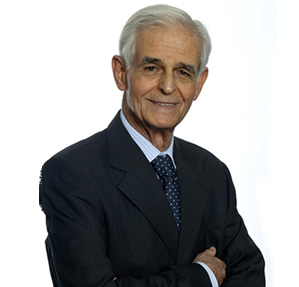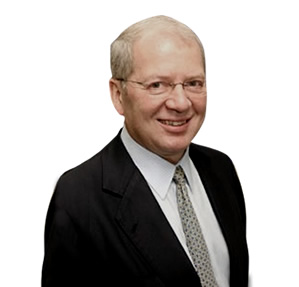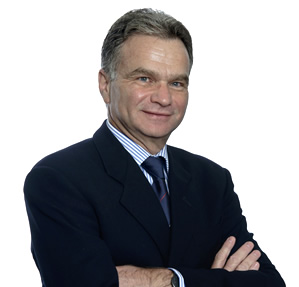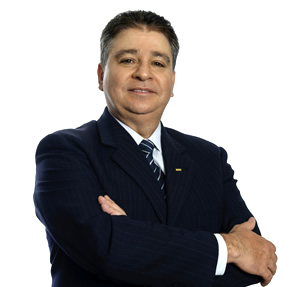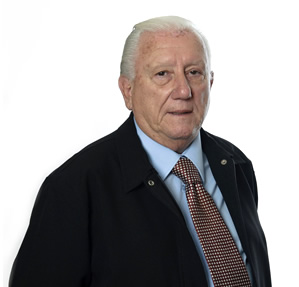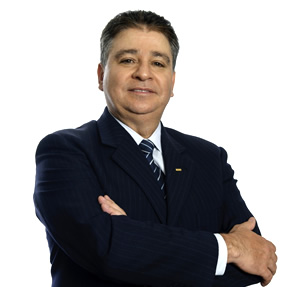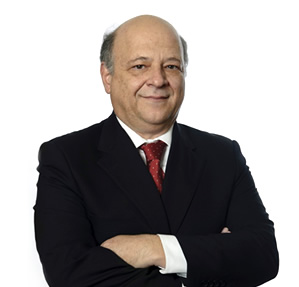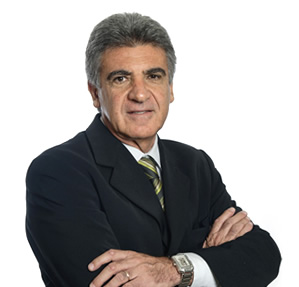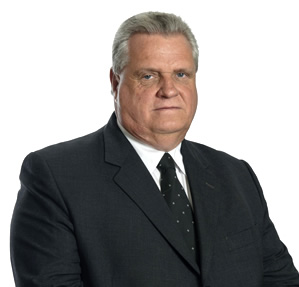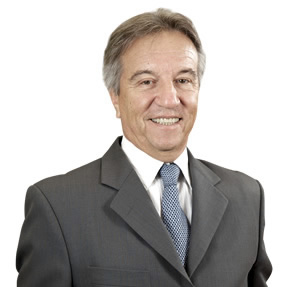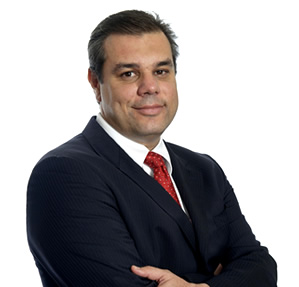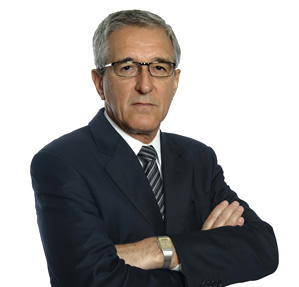02DIVERSIFICATION WITH QUALITY AND TRANSPARENCY
CORPORATE GOVERNANCE
As one of the few listed companies in Brazil whose capital is thinly spread, Eternit strives to achieve transparency, which is the reason why it has adopted the best Corporate Governance practices. These practices exceed the legislative requirements, and are the basis for the Company having been listed on the Novo Mercado since 2006, BM&FBovespa's highest level of Corporate Governance.
One of the rules of the Novo Mercado is that a company must only have ordinary shares, with voting rights. To facilitate the fulfilment of this right, in 2010 Eternit implemented an electronic platform “ Meetings on the Web ”, enabling shareholders who are resident outside the state of São Paulo, equivalent to more than half of the shareholder base, to participate in meetings online. This addition, in contrast to the requirements of the Novo Mercado regulations, means that instead of there being one public meeting a year, the Company holds four, one in each quarter. In 2011 there will be a minimum of six meetings throughout the Country, with the aim of making progress in terms of good Corporate Governance practices.
Another major advance in governance terms was the adoption of the International Financial Reporting Standards (IFRS) in 2007 for the publication of its financial statements. Among Brazil's listed companies, Eternit is a pioneer in adhering to the IFRS standard, which in Brazil only became obligatory in 2010. In practice, the IFRS standard resulted in the need for additional information to be provided in the explanatory notes, which provides additional transparency for the investor.
Transparency, indeed, has always been part of Eternit's activities. Being a company with thinly spread capital, corporate governance has become increasingly important for the success of its operations and one of the cornerstones of the Company's management. Eternit's corporate governance structure consists of a Board of Directors, and its advice committees, an Executive Board and the areas of Internal Audit and Internal Control. Eternit also subject to external auditing, carried out by an independent company, which is rotated at least every five years, as determined by CVM Instruction No. 308/99.
In other words, Eternit's Corporate Governance model is based on the best market practices and has the principle objective of ensuring that the Company operates in a responsible and sustainable manner with respect to all the communities where it has a presence, in complete compliance with Brazilian Corporation Law.
The Corporate Governance model can be referred to on: www.eternit.com.br/ir
| Requirements of the Novo Mercado | Differentials practised by Eternit | |
| Maintenance of a free-float of at least 25% | Free-float of 76.63% | |
| Practice of distributing dividends on a quarterly basis | ||
| Minimum of 20% of Board Members to be independent | 86% of Board Members are independent Dialogue channel with Board of Directors which ensures anonymity for the contacting party, known as "Speak to the Board" |
|
| Holding of public meetings at least once a year | Eternit holds at least four public meetings a year |


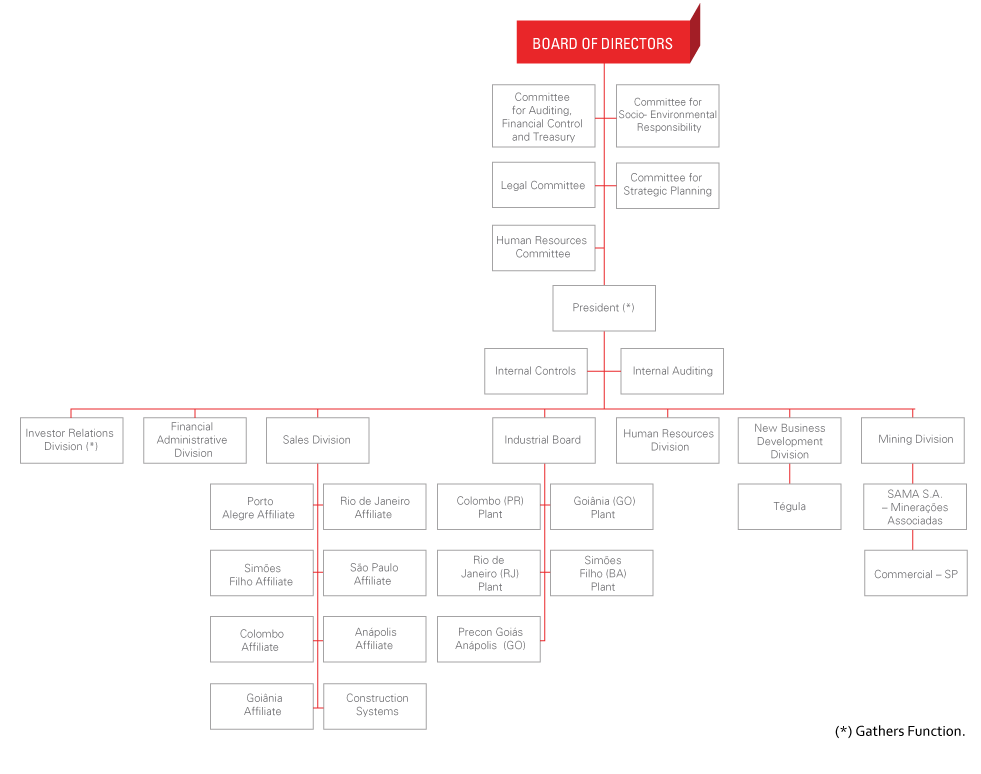
RECOGNITION OF ETERNIT'S CORPORATE GOVERNANCE
Eternit's performance in valuing transparency and maintaining the best corporate governance practices was notable in the capital markets in 2010, demonstrating that Eternit's quality is also present in its Corporate Governance.
Best Corporate Governance Program in Latin America: Eternit's corporate governance program was elected for the second year running as the best in Latin America by IRGR (Investor Relations Global Rankings), in its 12th edition. The Company's program was selected from 503 companies in 35 countries.
There is evolution in Corporate Governance: Eternit’s model was awarded the prize by the Brazilian Corporate Governance Institute in the category of Progress in Corporate Governance. Among other initiatives which contributed to this occurrence was expansion in the Company's communication process with its shareholders through the creation of tools such as "Web meeting", the Company's blog and an increase in the number of independent board members.
Best Annual Report: the Company received the prize for best Annual Report in 2009 from Abrasca (Brazilian Association of Listed Companies), in the category of Group 2 listed companies, consisting of those companies with net revenue of less than R$ 1 billion. This is the second time that Eternit has won this prize – its report in 2007 having been also elected as best for that year. Its 2008 version was ranked in second place.
COMMITTEES
Eternit's committees have been created to provide advice to the Board of Directors, allowing in-depth discussion on specific themes. Currently Eternit has five committees:
- Committee for Audit, Treasury and Control
- Committee for Socioenvironmental Responsibility
- Legal Committee
- Strategic Planning Committee
- Human Resources Committee
The basic structure of all the committees consist of the President of the Board of Directors, the President of the Executive Board, a reporting member, and members of the Executive Board and/or Board of Directors. If necessary, the committee can also include a manager or other employee of the Company, professional consultants for external auditors.
The agenda is defined and distributed before the meetings. A secretary types up the minutes of these events and sends them to the participants for the next meeting of the Board of Directors. In 2010 there were 25 committee meetings.
BOARD OF DIRECTORS
Eternit's Board of Directors has the mission to promote growth and sustainability with the approval of all the company's shareholders. In 2010 the Company implemented another good corporate governance practice: it reduced the number of board members from eight to seven, eliminating the possibility of a decision being arrived at by a casting vote, as well as increasing the number of independent board members from 50% to 86%. Board members carry a mandate of one year, with the possibility of re-election at the Annual General Meeting.
It is the function of the Board to provide guidance for the businesses and strategies of the Eternit Group, elect its Executive Board, manage dividend policy and create committees for specific debates on particular subjects, whether they be economic, social or environmental.
The Board meets every two months, with routine meetings being on even months and extraordinary meetings being held in convened by one of its members. In accordance with its internal regulations, if a board member finds himself unable to form an independent opinion on a particular subject, the member must absent himself from board decisions on the subject, with his withdrawal being registered in the meeting minutes. In 2010, 15 meetings were held, double the amount of meetings held in 2009.
The annual remuneration paid to the Board of Directors was R$ 1,550,000 in 2010, R$ 548,000 referring to fixed salaries and R$ 1,002,000 to variable remuneration, which corresponded to 1% of the net earnings in the period, as approved at the Annual General Meeting on April 8, 2010.
(*) Independent members in accordance with the regulations defined by the Novo Mercado.
EXECUTIVE BOARD
With a mandate of one year, and the possibility of re-election, the Executive Board consists of seven members, including the President of the Company, also doubles as the Investor Relations Director. The Executive Board's function is to implement the strategic decisions proposed by the Board of Directors.
Since 2008, the Executive Board has met on a weekly basis, with the aim of more frequently monitoring the actions and the results of Eternit, in addition to promoting more synergy between the areas of the Group.
The annual remuneration paid to the Executive Board amounted to R$ 10,418,000 in 2010, with R$ 3,310,000 referring to fixed salaries and R$ 7,108,000 to variable remuneration. Under the terms of the share of acquisition plan, a director may invest his bonus, via the market, in shares of Eternit. This policy can be referred to on the following website link: www.eternit.com.br/ir. As at the end of February 2011, the Executive Board held 1.81% of the Company's capital. LA14
DEPARTMENT OF INTERNAL CONTROLS
The Department for Internal Controls is an independent area, reporting to the President of the Executive Board, and has the purpose, using a series of procedures, methods and routines, to protect the Company's assets, produce reliable accounting data and help to manage orderly running of the Company's businesses. This area establishes procedures for all the companies of the Eternit Group, with the objective of keeping these practices uniform, except for the peculiarities of each business.
INTERNAL AUDITING
Eternit's Internal Auditing is also an independent department, reporting to the President of the Executive Board, having the function of verifying the compliance of all the Company's activities to norms, laws and policies, as well as internal directives.
This area has a calendar of annual verification, while also attending the requests of the Executive Board and the Board of Directors in this regard. In addition to Company Headquarters, the manufacturing plants are also audited. All the units in the Eternit Group underwent internal auditing at least twice in 2010. According to the workplan, no instances of corruption, child labour, slave labour or other non-compliance with the ethical principles and values of the Company were registered, neither any infraction of the legislation. HR6 HR7 SO2
EXTERNAL AUDITING
Currently Deloitte Touche Tohmatsu are the external auditing firm contracted by Eternit. According to the rules of contracting auditors, this company must be replaced after five years of working with the Company, this period coming to an end in April 2011. SO2
